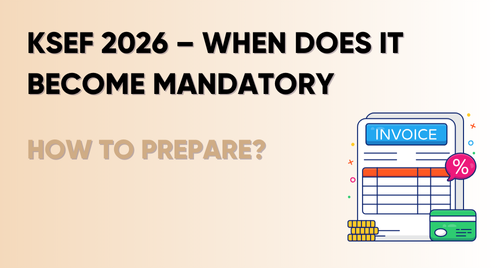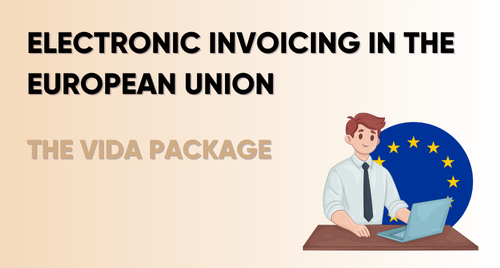
The SARS-COV-2 pandemic in Poland. Small and young enterprises on the verge of bankruptcy. Anti-crisis shield. What do you need to know about economy rescue plans? You don’t know what to do? You can count on professional help from TaxCoach advisors.
Due to fear and restrictions caused by the coronavirus, more than half of the smallest entrepreneurs in Poland are experiencing huge problems. One-third lost income overnight and do not know when they will get it back.
What does the government say?
On March 31, the so-called Crisis Shield - below is an overview of those changes that may affect the conduct of business.
LABOR LAW
Exemption from social security contributions
Exemption from the obligation to pay contributions to ZUS for employers employing up to 9 employees and persons running a sole proprietorship (self-employed), whose income did not exceed 300% of the forecast average monthly gross remuneration in the national economy in 2020 for the period from March 1, 2020. until May 31, 2020
Compensation for downtime
Paying an employee (regardless of the type of employment relationship) in the event of an economic downtime or reduced working hours, a remuneration reduced by no more than 50%, but not lower than the minimum wage, and it is co-financed by the Guaranteed Employee Benefits Fund up to 50% of the minimum wage, taking into account the working time. Co-financing shall not be granted to the remuneration of employees whose remuneration in the month preceding the submission of the application for co-financing was higher than 300% of the average monthly remuneration for the previous quarter announced by the President of the Central Statistical Office, applicable on the day of submitting the application.
Working time limitation
If the employer has a decrease in economic turnover as a result of COVID-19 by at least 15%, the possibility of reducing the workload by 20%, not more than 0.5 full-time, but the remuneration cannot be lower than the minimum remuneration for work, taking into account the working time work, and it is co-financed by the Guaranteed Employee Benefits Fund up to half of the salary, but not more than 40% of the average monthly salary for the previous quarter announced by the President of the Central Statistical Office. Co-financing is not entitled to the remuneration of employees whose remuneration obtained in the month preceding the month in which the application referred to in paragraph 1 was higher than 300% of the average monthly remuneration for the previous quarter announced by the President of the Central Statistical Office, effective on the day of submitting the application.
Working time
Liberalization of the rules for determining the system or schedule of working time and overtime by some employers.
Trading on Sundays
Easing the ban on performing activities related to trading on Sundays with regard to unloading, receiving and displaying essential goods and entrusting an employee to perform such activities.
Suspension of periodic tests
Suspension of the obligation to conduct periodic medical examinations ordered by the employer during the period of an epidemic emergency or epidemic.
Extended validity of studies
Medical certificates issued as part of the initial, periodic and control medical examinations, the validity of which expired after March 7, 2020, shall remain valid, however, not longer than 60 days from the date of cancellation of an epidemic threat or state of an epidemic.
TAXES
Payment backlogs
Trade liabilities not settled within 90 days within the meaning of the provisions on counteracting excessive delays do not increase the income constituting the basis for calculating the advance tax for individual accounting periods falling in 2020 (if the revenues obtained by the taxpayer in a given accounting period are lower by at least 50% in compared to the same period of the previous tax year).
Settlement of loss
Enabling taxpayers who incurred a loss due to COVID-19 in the fiscal year 2020 and obtained in this fiscal year revenues lower by at least 50% than the revenues obtained from this activity in the fiscal year 2019, one-off reduction in the amount of income obtained in 2019 by this loss (up to a maximum of PLN 5 million).
Tax advances
Postponement of the payment of advance payments for income tax on remuneration paid to employees for March and April 2020 until June 1, 2020.
Acceptable delay in submitting a PIT tax return
Submitting a declaration of the amount of income earned (loss) for 2019 and payment of the due personal income tax by May 31, 2020 (instead of April 30, 2020) does not result in negative penal fiscal consequences. The wording of the provision suggests that the extension does not apply to the solidarity levy (4% on income above PLN 1 million), which should be declared and paid by April 30 this year.
Postponement of the deadline for submitting a CIT return
The deadline for submitting a tax return for the amount of income (loss) for 2019 and payment of the due corporate income tax was postponed until May 31, 2020.
Tax interpretations
Extending the deadline for issuing tax interpretations to 6 months.
Preferential deduction of donations to fight the epidemic
Possibility to deduct donations to counteract COVID-19 on preferential terms: 200% (donations made by April 30), 150% (donations made in May) or 100% (donations made from June 1 to September 30).
Electronic receipt
The possibility of issuing a fiscal receipt in an electronic form instead of in a traditional paper form upon agreement (with the consent of the buyer and in a manner agreed with the buyer).
VAT matrix
Postponement of the entry into force of the so-called VAT matrix as of July 1, 2020
Extension fee
No extension fee if the taxpayer's request for deferment or payment of tax in installments is granted.
RENTALS
Expiry of obligations (commercial facilities)
During the period of the ban on operating in commercial facilities with a sales area of more than 2,000 m2, the obligations of the parties to the lease, tenancy or other similar agreement expire. Related to the tenant's obligation to submit to the landlord an unconditional offer to extend the term of the contract on the current terms for the duration of the prohibition and another six months after the ban.
Prohibition of termination and extension of the existing lease agreements
Prohibition of terminating tenants of lease agreements and increasing the rent until June 30, 2020 (subject to the exceptions specified in the Act).
BANK LOANS
Changes in loan terms
Possibility to change the terms and repayment dates of a bank loan (loan) granted before March 8, 2020 without the need for a full creditworthiness test (only for micro and SME).
Financial assistance from BGK
The possibility for Bank Gospodarstwa Krajowego to grant sureties and guarantees for the repayment of loans taken by entrepreneurs, with the exception of micro and small entrepreneurs, intended to ensure financial liquidity. The surety or guarantee may cover no more than 80% of the outstanding amount of the loan covered by the surety or guarantee. Over PLN 100 billion of BGK guarantees and sureties are planned for loan repayments (up to PLN 250 million - we assume that these are the amounts of individual loans) of medium and large enterprises.
UKNF announcement regarding creditworthiness
Facilitating the extension or increase of financing (up to 1 year) granted before December 31, 2020 in the event of a temporary threat of loss of liquidity and preferential treatment of borrowers covered by BGK guarantees in the amount of 80% of the loan amount, including with regard to new financing - in accordance with the Communication of the Commission Office Financial Supervision Authority of March 31, 2020 (https://www.knf.gov.pl/o_nas/komunikaty?articleId=69406&p_id=18) and the Communication of the Polish Bank Association No. 2 on assistance activities (https://zbp.pl/aktualnosci / events / Komunikat-ZBP-nr-2-wsialan-pomocowych).
Financial assistance from PFR
New tasks of the Polish Development Fund including public aid through financing intended, inter alia, to prevent or repair damage caused by natural disasters, other emergencies, including the spread of COVID-19 by (1) taking up or acquiring shares, stocks, subscription warrants, bonds, receivables and joining partnerships; and (2) granting loans, guarantees and sureties.
FUNCTIONING OF ENTREPRENEURS
Remote meetings of bodies
Possibility of remote operation of management boards and supervisory boards of capital companies, as well as remote participation in shareholders' meetings (general meetings) of capital companies. The necessity to adopt the by-laws setting out the rules for remote participation in shareholders' meetings. Obligation to ensure real-time broadcast of general meetings in public companies.
Financial Statements
Postponement by 3 months (or 2 - depending on the entity) of the deadline for the preparation of financial statements.
UBO register (Ultimate Beneficial Owner) - real beneficiary
Postponing the deadline for submitting information to the Central Register of Real Beneficiaries by July 13, 2020.
OTHER CHANGES
Time limits run
Suspension for the duration of the state of an epidemic threat or epidemic of the running of administrative law deadlines (the provision relating to, inter alia, prescription, deadlines, deadlines for reporting changes to registers) as well as procedural and court deadlines.
Hearings
Hearings and public hearings will not be held during the period of the COVID-19 epidemic; the exception are urgent matters specified in the Act.
Suspension of administrative executions
The possibility of suspending administrative enforcement proceedings of pecuniary receivables by way of an ordinance of the Council of Ministers specifying the territorial scope and the period for which the suspension of enforcement takes place.
Prices and maximum margins
Introducing the possibility of establishing maximum prices or maximum wholesale and retail margins used in the sale of goods or services of significant importance for the protection of human health or safety or household maintenance costs by way of an ordinance of the Minister of Development in consultation with the Minister of Health and the Minister of Agriculture and Rural Development.
What should be done to be exempt from paying ZUS contributions?
ZUS, as usual, does not make life easier for entrepreneurs.
Scandalous in its form is the application for the deferral / exemption of ZUS contributions due to the coronavirus pandemic.
The assurances were clear. The application for deferment of ZUS contributions was to be simplified as much as possible.
If you have not yet seen the application, this is an opportunity to catch up. Https://www.zus.pl/documents/10182/788036/RSO_edyt/498a4a26-8ab8-443e-b67c-8a3c4a36c8ca several pages. You must provide, among others, the form of taxation in 2017-19, the amount of income, costs, income tax advances and outlays on fixed assets in each of these years. There are also questions about private assets or the amount of private liabilities.
As if that were not enough, the conclusion must be justified. The column regarding this element aroused the most controversy. Applicants must write down how the outbreak has affected their company's finances.
Submitting a completed application does not guarantee postponement / exemption from ZUS contributions.
Only professionally and reliably completed applications guarantee entrepreneurs a postponement / exemption from contributions for a period of 3 months and obtaining a subsidy.
If you are one of the millions of Polish small entrepreneurs and your company, employees and family will lose all income in the near future, you can count on the help of our accounting office.
Our experts will help you complete and submit complex applications:
- for postponement / exemption from ZUS contributions for 3 months
- for deferral / exemption from taxes
- for deferment of loan installments
- for subsidies to the loan installments
- for subsidies to leasing installments







.jpg)


